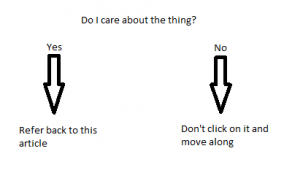Say you are living in turn of the seventeenth century London. Your dad died when you were about 8, you spent some time fighting the Dutch Republic, you don’t like Scotland or the King of England, but you love you some gunpowder. So what do you do? If your name is Guy Fawkes, you try to blow up Parliament, obviously. Given his actions, it would be reasonable to say Fawkes had a strong personal reaction to authority. While you’ve probably never attempted the assassination of a political figure, you do have your own reactions to authority.
But we don’t live under a monarchy or totalitarian regime, you might say. How often does your average Westerner have an opportunity to react one way or the other to authority? For some relevant examples we need look no further for a source of stories than my dear old dad. Pops was a cop in Winston Salem for about 20 years. I love that old city, but if you want to get an idea of what the place can be like, Google “Winston-Salem riots.” He has tons of examples, but none stuck with me quite like this one neighbor dispute he was called out to. Long story short, a drunk guy is trying to start a fight with the other drunk guy next door. My dad tells the more belligerent one he is going to arrest him for public drunkenness if he comes back outside yelling again. He (the drunk, not my dad) is eating a bologna and mayonnaise sandwich. He tells my dad he is going to beat his ass and he is going to start by hitting him in the face with said bologna and mayonnaise sandy. For the first time in his life, and maybe in anyone else’s life, my dad calmly states “You will not hit me with that bologna sandwich.” Drunk guy defiantly saunters over, reels back with the mystery meat on wheat and…the next thing drunk guy knows he is waking up in a jail cell for day one of a thirty day sentence. Mr. Sleepygrey Senior always forgot to mention he was also a semi-pro martial artist back in the day. If you weren’t sure, this is poor choice for a reaction to authority.
So good, bad, dangerous, or hilarious, every time any one of us is exposed to authority we have a reaction to it. The reactions range widely and wildly, but whether we want to believe it or not, each of us most often complies with authority when confronted with it. This leads us to the first of today’s two logical fallacies; the Appeal to Authority.
You may not realize it, but this is one you see ALL the time-
“Some doctors say vaccines are linked to Autism.”
“There are a lot of scientists out there that don’t think the climate is changing.”
“The Food Princess has a ton of follows, so the acai berry must really cure arachnophobia.”
We do tend to trust those we see as experts or authorities. This is not always a bad thing. You should trust your medical doctor when it comes to matters of health. That girl/guy went to school longer than some of you have been alive to learn that stuff. Listen to them! This is an example of an actual subject matter authority.
Sometimes, however, our tendency can be used against us in devious ways. It can be used by a person who is in reality, not an authority. We will talk more about this shortly as it leads into the next fallacy. But for now, we need to talk about the abuse of power by quasi-real authorities. Let’s make up a character. We will call him, oh I don’t know, Dr. Foz. Our Dr. Foz is strikingly handsome, a phenomenal surgeon, super witty, and most importantly, the camera loves his chiseled face. Unfortunately, the only thing Dr. Foz loves more than a successful cardio-thoracic slice and dice is the limelight. So in order to keep his prime afternoon time slot, he comes to you daily with the next “super food” or “deadly poison in apple juice they don’t want you to know about.” By titling his show, The Dr. Foz Show and constantly talking about his medical opinion, he is appealing to his hypothetical authority as a doctor as the basis for substantiating his claim rather than the validity of the claim itself.
And there, after so many paragraphs, we get to what this fallacy really is. The Appeal to Authority is this- it is saying that a thing must be true because “X” authorities believe it. Does that really sound that bad? Um, well, yes or I wouldn’t be writing about it. A fact is a fact whether everyone believes it or no one believes it. In an argument, any and all facts should be supported by their own merits. The addition of supposed authorities who supposedly already believe something may help convince people, but it does not honestly win any argument and by no means gets us closer to the real truth.
So, practically speaking, what do you do now? The most basic and the most important change you can make is to simply be aware this is a thing. When you see an advertisement or a re-post or re-tweet, you can quickly look and see if it is trying to convince you primarily by appealing to authority. If you determine this is the case, I’ve made a super simple flowchart you can follow.

If the subject matter discussed is important to you, you need to learn more. You also need to be wise about where you go to learn. If you care about what kind of pesticides are on your food, you do not need to go to NotOrganicEqualsPoison.com (not sure if that is a real site but it has to be). If you care about nutritional supplements you will not find objective info at AllYourVitaminNeeds.biz. You need to go to the FDA’s website. See what the CDC has to say about it. If you really, really care about it, we all have access to a multitude of peer-reviewed content out there. Or you could just drop me a comment saying what thing you are wondering about. Odds are, if you stick around long enough, you are going to see me rip lots of industries a new one- I’m looking at you homeopathy. But, in all seriousness, if you care enough about something to spend your hard-earned dollar on it, show yourself the respect of doing some legit research.
Okay, stick with me, we are almost done. So I said we were going to talk about two logical fallacies. This last one goes hand in hand with the appeal to authority so I thought it would be useful to include it here. It is called the Alphabet Soup fallacy. Obviously, this is a modern take on a classic. To summarize, it is using lots and lots of esoteric* words that make you sound like an authority on the subject when you really aren’t. I do this every time I talk about sports. I know enough of the terminology and have been subjected to enough Sports Center to fake knowing what I am talking about. “Are you kidding me?!?! The quarterback was clearly icing the puck from the foul line! It should be 20-love or a hole-in-one at least!!” You see what I did there? You would never guess I wasn’t an authority on sports. This one is actually pretty easy to spot when you are on the lookout. When someone’s mouth transmutes into a firehose spilling out buzz words and abbreviations without taking a breath, you have my permission to assume they are exhausting their entire knowledge base in this single rehearsed deluge and to commence ignoring them at every future opportunity.
Lastly, I would like to thank anyone who strapped on their rhetorical hiking books and trudged to the end of this article with me. I hope you found something useful in it. Please leave a comment if you liked it. If you didn’t like it, please keep your stupid mouth shut, I will not be made to cry again today. But for real, if there is any topic you would like me to flex some logical muscle on, please let me know below. I would be happy to mix it up a bit. Until next time.
-sleepygrey
*(P.S., if you don’t know what “esoteric” means, I love you, you sweet summer child, but I am going to have to direct you to Miriam and Webster. You’ve got to give me something to work with here.)
Sleepygrey is an old man in the creepypasta world. While he doesn’t write in a manner anyone would call prolific, he does like to think his contributions are of quality. Sleepy has also been known to make occasional forays into the fields of psychology and ethics, although this work tends to garner far fewer clicks. He resides in the Research Triangle Park area of North Carolina.














2 comments